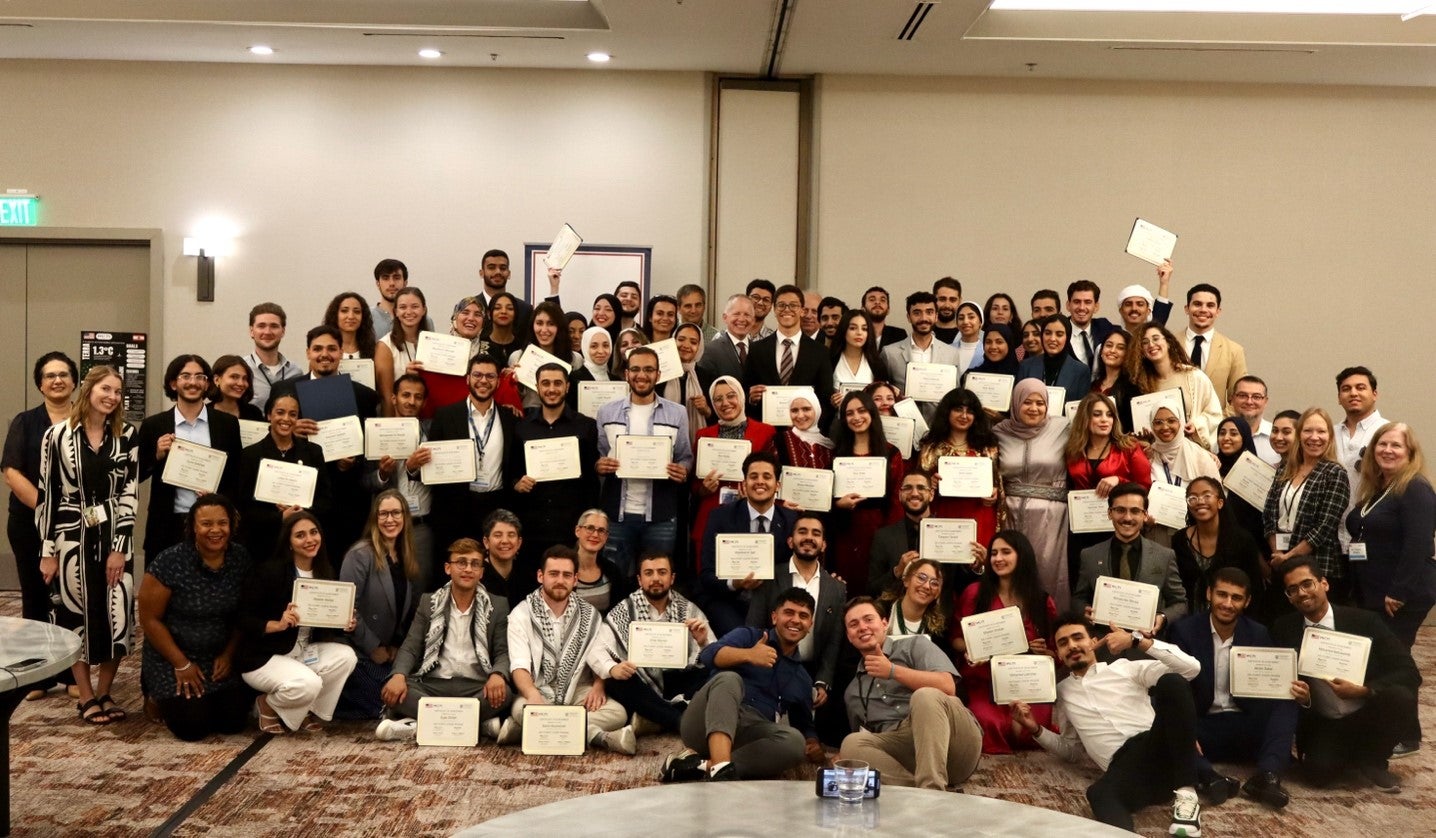2024 MEPI Student Leaders Program Empowers MENA Region’s Youth Leaders to Address Climate Change

The Center for Intercultural Education and Development at Georgetown University (GU), in partnership with the U.S. Department of State, welcomed 60 talented college student leaders from across the Middle East and North Africa to Washington, D.C., this summer for another impactful year of the Middle East Partnership Initiative’s Student Leaders Program. The 2024 program’s thematic focus was on climate change and included workshops on leadership and professional development, project development, climate change mitigation, and environmental protection.
The 60 student leaders traveled from 15 countries, including Morocco, Algeria, Libya, Tunisia, Egypt, Jordan, Israel, West Bank, Lebanon, Syria, Iraq, Kuwait, Bahrain, Qatar, and Yemen, to participate in the Student Leaders Program. Participants were placed at one of four consortia universities: Georgetown University, Portland State University, Montana State University, and the University of Delaware.
The 2024 Student Leaders Program recruited and selected highly talented candidates with a strong interest in or experience with climate change initiatives. As part of the climate emphasis this summer, each university integrated climate change lectures and discussions into their academic curriculum and environmental activities into their program calendar. All four universities included academic classes and participatory workshops on MENA region climate change needs, and also incorporated climate change site visits and climate change-based service learning activities into their program schedules. At Georgetown University, classes ranged from “Climate Change and Social Justice” to “Gender and Climate Change,” to “Engaging Communities in Building Decarbonization Policy,” among many others.
Georgetown University student leaders left the classroom for many site visit activities and service-learning opportunities. This included a site visit meeting with the National Park Service Rangers at the Shenandoah National Park to discuss the impact of climate change on park flora and fauna, followed by a group waterfall hike to witness the effects of climate change firsthand. GU students also met with EarthJustice, a U.S. nonprofit, and the U.S. Attorney’s Office of Environmental Protection to discuss civil society efforts, as well as U.S. governmental efforts, to address climate change and the environment. A 2024 Georgetown highlight was a trip to tour the United Nations in New York and then meet with spokespersons from the UN environment and climate action global communications team.
To conclude the 2024 Student Leaders Program, student leaders at each of the four participating universities presented their Community Engagement Projects (CEPs) that they had spent the summer developing with the help of their university faculty and peers. All CEPs had either a direct or indirect focus on mitigating the effects and accelerants of climate change and aiding those whom the global climate crisis has had a disproportionately negative impact on. When asked about what they learned about climate change, one 2024 student leader responded, “The SLP helped me gain new knowledge of the complexities surrounding climate change and environmental issues, particularly how they are interconnected with many sectors of human life. I learned that climate change is not just an environmental issue; it affects social structures, gender dynamics, scientific advancements, international relations, and our relationship with nature. The program emphasized how climate change worsens social inequalities, influences global politics, and impacts public health, biodiversity, and even economic stability. Through various site visits and discussions, I explored how these sectors intersect and how addressing climate change requires a multi-faceted approach that includes advocacy, education, policy-making, and community engagement.”
Student leaders, along with SLP faculty and staff, ended the program with a two-day closing event in Washington, D.C., where student leaders from all four universities shared what they learned from their unique experiences and discussed how they could utilize the impressive SLP network to collaborate on both their CEPs and other civic engagement initiatives.

Funding for the Student Leaders Program is provided by the U.S. Department of State Bureau of Near Eastern Affairs Office of Assistance Coordination (NEA-AC).
